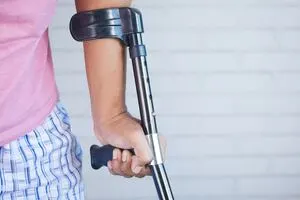Some injuries or illnesses may result in a short-term disability of an employee to continue to work. It is detrimental to both the employee and the employer because the employee faces wage loss issues and the employer has to suffer from a lack of productivity in their business to the extent of an employee’s contribution to the job. For this purpose, there are certain short-term disability benefits you can claim as an employee to tackle this problem.
It is crucial to understand when to apply for short term disability and who should get short term disability insurance. Most people are also clueless about where to get short term disability and is short term disability the same as workers compensation?
Learn how to get short term disability coverage, how it works, and the importance of lawyers for short-term disability claims.
What is a short-term disability?
Table of Contents
ToggleIt is a kind of insurance coverage providing financial support to employees who suffer from a temporary setback in work due to an illness, injury, or any other medical situation. The duration of short-term coverage may vary, depending on the nature of the disability of the employee. However, it usually spans up to some months. This coverage helps them meet their expenses for a certain period of time, and the coverage is usually a portion of what they were usually earning before the temporary disability. It is a temporary relief insurance system.
How does short-term disability insurance work?
As a means of income replacement, short-term disability coverage is provided by insurance companies to help the employee who is temporarily unable to work for some time due to an illness, injury, or other reasons. If you are an insured employee for short-term disability benefits, you will receive a portion of your salary to cover your expenses during the term of your short-term disability, over a fixed period of time. Therefore, it is essential to get insurance for short-term disability coverage to avoid complications in the future. The most common types of short-term disability insurance available are traditional, voluntary, core buy-up, and contributory.
What qualifies as sa hort-term disability?
What qualifies as short-term disability varies for each State in the USA. However, the following events qualify as the common causes of short-term disability:
- Accidents (vehicle, workplace, and others)
- Injuries (personal injury, etc.)
- Illness (Chronic or temporary medical condition)
- Psychological reasons (traumas, depression, PTSD, etc.)
- Maternity leave/pregnancy
Who Qualifies for Short-Term Disability?
The following people qualify for short-term disability:
- Accident victims: Employees who suffer temporary disability due to accident victims are eligible to get short-term disability coverage.
- Injured people: Employees who are injured in temporary injuries and are unable to continue their work over a certain period of time.
- Medical condition or illness: The employee suffering from a temporary medical condition or illness that makes it impractical for them to continue their job temporarily.
- Pregnant women: Pregnant women or employees on maternity leave also qualify for short-term disability.
What are Short-Term Disability Benefits?
Some of the benefits covered under short-term disability coverage are as follows:
- Medical expenses: The insurance company pays you money to meet your temporary medical expenses due to your injury or illness.
- Job Protection: With short-term disability coverage, your job is secured for the duration you recover from your illness. However, some states don’t ensure job protection under short-term disability benefits, so the employees have to rely on the Family and Medical Leave Act (FMLA) for that.
- Financial security: You are paid through short-term disability coverage to meet your expenses when you are unable to earn during your recovery period.
- Rehabilitation: Depending on the nature of the case, some insurance companies also provide rehabilitation services for employees to help them get back to their job.
How to Apply for Short Term Disability?
To apply for a short-term disability process, the following steps should be followed:
- If there is a short-term disability policy for your job, review it. Most employers have a short-term disability policy with an employment contract when they hire an employee.
- Inform your employer about the nature of the temporary situation you’re in and why you’re unable to work for a certain period.
- Get the necessary medical documents, diagnosis, and professional opinion from the relevant medical specialist. Make sure to obtain medical certifications, records, test reports, treatment plans, and the expected time to recover from the condition.
- Submit the short-term disability application that is given to you by the insurance company or your employer, and make sure all relevant information is provided before you submit it. Seek legal advice from a short-term disability attorney to avoid any mishaps.
- Attach the supporting documents, such as medical documents, bills, opinions of the doctor, etc., with your application.
- Submit the file to your insurance company or employer, whichever the case may be, and keep track of the progress of your application so that you can meet deadlines (if any).
How Short-Term Disability Denials Can Affect Long-Term Disability?
The outcome of a short-term disability claim can have an impact on a long-term disability claim. If your disability persists, you may need to apply for long-term disability. A negative outcome on a short-term disability claim can affect the credibility, authenticity, and legitimacy of your claim in the eyes of an insurance company. Therefore, it is essential to prepare your documents and application adequately. It is beneficial to engage the services of an experienced short-term disability attorney before you put forward your claim. This will help you avoid the legal mistakes that can impact long-term disability claims later, should you need it.
In conclusion, short-term disability coverage is a kind of financial support given by an employer or insurance company to an employee who is temporarily unable to work due to some medical condition, accident, or injury. It is essential to ensure that you have prepared a good case before you submit your short-term disability application. An expert short-term disability lawyer can help you ensure that all crucial legal and professional requirements for your application are met. If you have experienced a short-term disability, consult an expert disability attorney today to win the compensation you deserve.
FAQs
What is the difference between short-term disability and FMLA?
The main difference between short-term disability and the Family and Medical Leave Act (FMLA) is about the purpose and situation each type cover. Short-term disability is insurance coverage for employees who cannot perform their job due to some non-work related situations. These situations can be medical, accident-related injuries, or any other reason. However, FMLA is federal legislation for job protection for employees in certain family and medical situations they might face. It provides job security as compared to short-term disability coverage, which is financial support only.
What is the elimination period for short-term disability?
The elimination period for short-term disability can be between seven weeks (28 days) to 52 weeks (365 days). The elimination period may vary and depend on the nature of the temporary disability.
Can you go on short-term disability for anxiety, depression, or stress?
Yes, it is possible to go on short-term disability for anxiety, depression, or stress if you are having trouble performing your duties due to such mental health issues. You will need to run a proper psychiatric diagnosis and a report/opinion of a certified mental health practitioner to show you are suffering from temporary mental illness to obtain short-term disability benefits.
How do I ask my doctor for short-term disability?
You should request a proper medical diagnosis from your doctor, asking them to provide you with the necessary medical opinion, a detailed analysis of your medical situation, and how it may affect/or is affecting your ability to perform your job properly. They should also provide details about the recommended healing period.
Is short-term disability taxable?
Yes, but it depends on when and how you are being paid the short-term disability money. If you are an employee, when you receive the short-term disability amount, the tax is already deducted from that amount through income tax so you don’t have to pay any additional taxes on it when you receive the short-term disability benefit money.
He has founded multiple law firms and has personally represented over 20,000 clients. His firms have helped over 250,000 clients.
At Royce Injury Lawyers, personal injury law is all we do. Whether you've been hurt on the job, had an auto accident, nursing home injury, or experienced medical malpractice, you can count on our attorneys and investigators to work for you.
- Key Facts About Missouri’s No Pay No Play Law - 28th May 2025
- Understanding Taxes on Personal Injury Settlements - 23rd May 2025
- Navigating Your Rights After a Car Crash While Pregnant - 21st May 2025


